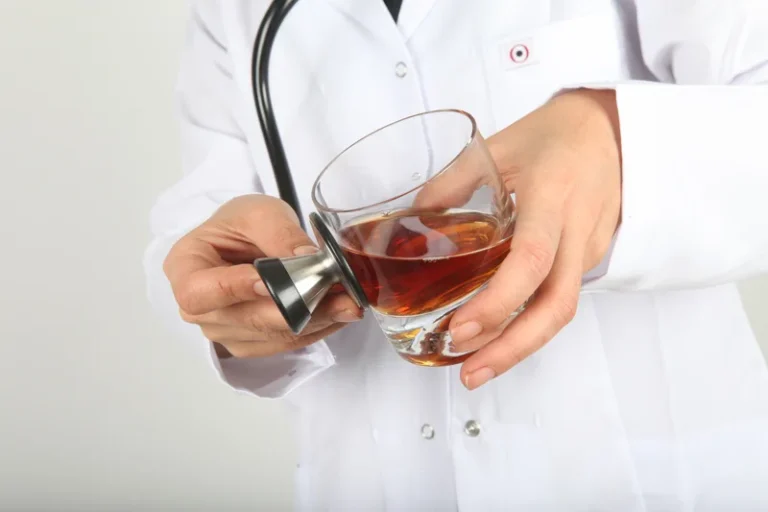
It also helps control our cognitive abilities, such as learning and memory. However, alcohol suppresses glutamate’s effects, leading to even slower brain activity. This decrease in brain activity not only affects us while we’re drinking, but it can result in brain fog the next day. It’s also why we might have difficulty concentrating or recalling certain things. Most people who have dealt with alcohol addiction have some idea of what brain fog feels like because it is very similar to how you might feel after a round of heavy drinking. Even a mild binge can lead to hangovers that create foggy thinking.
- The duration of brain fog can vary based on the amount of alcohol consumed, your body’s tolerance, and how well you managed your hydration and nutrition while drinking.
- As veteran PACE and adult day health care executive, Jillian is passionate about promoting health, independence, and an overall increased quality of life for seniors and their families.
- By being mindful of your drinking habits, you can protect your brain from the negative effects of alcohol.
- She trained in internal medicine at the George Washington University, where she came to recognize her life’s mission of caring for individuals with medical and psychosocial complexities.
- These methods tap into the mind’s capacity for healing by fostering a sense of calm, mindfulness, and self-expression.
Mind, Body, Spirit Focus
She is a trained internist with a fellowship in geriatric medicine and social scientist with a specialization in gerontology. Prior to joining WelbeHealth, she founded a home health company and taught gerontology at McMaster University in Canada. She completed her undergraduate training in gerontology at McMaster University. Kendell has served as both a Teaching Attending and a Hospice Medical Director. Sophia is a passionate health care leader with an expertise in senior care operations. She foggy head days after drinking was at the helm of AltaMed’s ADHC and PACE growth and expansion for over 18 years.
What exactly is brain fog?
Often, it sneaks up on you during alcohol withdrawal and recovery, causing difficulty in concentrating, memory problems, and a feeling of being mentally sluggish. Brain fog isn’t a medical condition but rather a symptom characterized by mental confusion, lack of clarity, and inability to focus. After drinking alcohol, brain fog is often a result of dehydration, poor sleep, and the body’s process of metabolizing alcohol. Understanding the underlying causes of post-alcohol brain fog can help you implement strategies to manage it effectively. Before we look at alcohol’s role in brain fog, let’s take a moment to define brain fog.
- It can be caused by a number of different factors, including alcohol addiction.
- While this sensation can be frustrating, understanding why alcohol causes brain fog is crucial for anyone aiming to improve their cognitive health and overall well-being.
- Dr. Chen is driven by a motivation to act as a catalyst for positive change in the world.
- Brain fog from drinking can last for a few days after quitting, however this period of confusion and instability is only temporary.
- Chronic heavy drinking can actually change the structure and function of the brain, potentially leading to persistent cognitive deficits.
What Is Brain Fog After Drinking?
- These changes not only help your brain recover from the effects of alcohol but also enhance your overall well-being.
- However, you don’t have to rely solely on nuts for your brain food.
- Moreover, prescription medications from doctors can help control cravings and stabilize the central nervous system during this critical period.
- It also dulls the excitatory neurotransmitter glutamate, which plays a key role in learning, memory, sleep, and mood.
Getting enough sleep is one of the most important things that you can do to clear your head and get rid of brain fog and improve your cognitive function in the long term. It’s no wonder that so many people report feeling foggy-headed after a night of drinking or even days after that. Or, if you’re used to having several caffeinated drinks throughout the day, try switching to just one or two. This will help reduce your caffeine ingestion slowly and may help to lessen the effects of caffeine mental fog. Dr. Alexander knows that medical conditions can be difficult for seniors and their loved ones to manage.
Why the Traditional Medical Approach to Sleep Is Failing Us
In this blog post, we will discuss what causes brain fog from alcohol, the symptoms of alcohol fog, and how to remedy the problem. Since alcohol can become addictive when someone drinks in excess for a long amount of time, it’s also important to remember that there are resources available that can help with recovery. After completing detox, individuals can benefit greatly from aftercare programs designed to provide ongoing support during the transition to sobriety. These programs often include regular check-ins, counseling sessions, and educational workshops on relapse prevention strategies. Practicing mindfulness techniques, such as meditation or deep breathing exercises, can help clear mental haziness and improve focus. Take a few minutes each day to engage in mindful activities and reduce mental stress.

Type and quantity of alcohol intake
It’s important to recognize that brain fog isn’t just some mysterious phenomenon—it’s often a result of our brain struggling to function at its best. While lack of sleep and poor nutrition can contribute to brain fog, one of the main culprits is chronic inflammation of the brain. Understanding this connection is crucial Sober living house because brain fog has led some people back to drinking. Eating a balanced meal with essential nutrients can help stabilize blood sugar levels and provide the building blocks our brains need to function properly. Focus on foods rich in B vitamins, omega-3 fatty acids, and antioxidants to support brain health.

This term refers to the state of not having enough water in the body, which can lead to symptoms such as thirst, dry mouth, headache, and fatigue. Taking a few minutes each day to practice mindfulness can make a significant difference in our ability to focus and think clearly. It’s about training our minds to be present in the moment and less reactive to stress.

Dr. Villalba regularly volunteers at the Huntington Beach Senior Center, where she enjoys gaining wisdom from the elderly and serving her community. With 15 years of experience, Tam has a wealth of knowledge and skills. She has served as a nurse in a variety of clinical settings, including hospitals and clinics. Prior to joining WelbeHealth, she served as a Nurse Practitioner in psychiatry. She is passionate about helping participants and their families within the community. She delivers high-quality, patient-centered care that makes a difference in her patients’ lives.
Addiction Therapy Programs

Nearly two million users say they ‘feel at home’ and ‘finally found a place where people understand them’. There are several popular apps for a brain workout, including Fit Brain, which features exercises that target emotional intelligence and self-awareness. Creative activities will not only take your mind off of unproductive thoughts but also provide an overall sense of serenity. You will be immersed in a state of tranquility, as long as you don’t judge yourself during the process.
